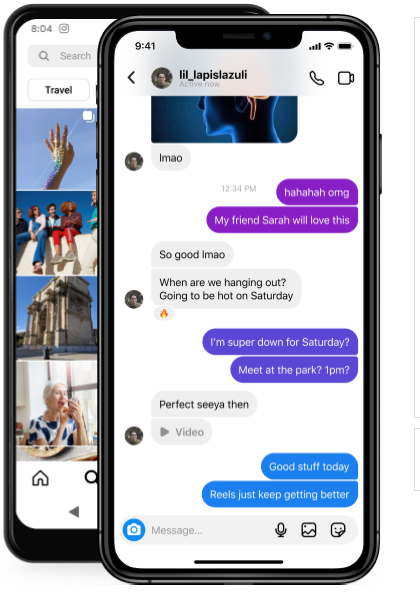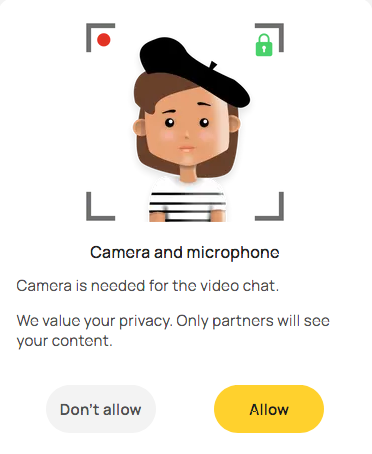Recent Arrest Underscores Need For At Home Protections

As Chief Of APD, Nishant Joshi, revealed a few more details about the recent arrest of an alleged online child sexploitation suspect, but, as a local parent, he unveiled volumes of views and advice that lie deep behind the badge that defines his role as a police officer.
Joshi provided a bit more about the tip provided by The WOLF Project, a volunteer organization dedicated to unearthing online sex predators of juveniles, which led to the suspect’s arrest on Nov. 2nd.
Joshi said that the suspect, who has subsequently identified as Alameda resident, David Baldwin Carlson, was allegedly “engaged in activity (of) possible crimes” which could include activities as inappropriate contacts, interactions, conversations, and chats with a minor and/or the downloading of child porn.
A WOLF team, which creates “bait accounts” and poses as prospective, online juvenile victims, lured the suspect to engage with them.
WOLF’S findings provided sufficient probable cause for APD to obtain a search warrant and an arrest warrant for Carlson.
“We got to learn this person’s routines, activities and learned that this person worked in the city of Emeryville, where we took him into custody,“ at Santa Rita County jail, said Joshi, referring to a near 6 month investigation by APD following receipt of evidence provided by WOLF.
The search warrant authorized an investigation of the suspect’s residence as well as his work station devices that “could have been used to engage in the illegal activity,” Joshi said.
Revealing greater detail of the alleged crimes and other related information “could impact the follow-up investigation, but when we can talk about it, we certainly will,” the Chief said, as to why APD is holding back for now.
He did indicate that, so far, the investigation has not shown that any of the alleged victims live in Alameda.
That said, Joshi indicated that this kind of thing “happens often (in the community). It’s a matter of catching these kinds of incidents and taking action,” and that includes parents as the first line of defense, he added.
“Criminals of this type are the lowest of the low,”
Chief Joshi
Joshi then crossed the boundary from policing to parenting, and spoke freely, and expansively, underscoring that “criminals of this type are the lowest of the low.”
“This is disgusting. Our children are of the most vulnerable members of our community, and our job is to protect them,” which includes parents and other community members in addition to police.
“Kids can’t make decisions on their own, and they can’t consent to these types of conversations because we as a community have agreed that they are not ready and capable and able to make those types of well thought out decisions.
When you have an adult who preys upon children, it’s disturbing, upsetting. As parents, we just want our kids to be able to enjoy their lives, be able to get on their phones, be able to get on their devices without having to worry about people like this that are going to put our kids at risk, “ he said.
It is critical that parents take steps to better shield their youngsters in a world with myriad devices, providing wide open gateways for child predators and sex traffickers to victimize minors, he said.
To do so, parents need be proactive and bold in monitoring their kids’ online lives.
“Don’t be afraid to have those difficult conversations about the harm our kids can experience from stuff like this.”
APD Chief Nishant Joshi
“When it comes to approaching safety, it’s “PIE”, says Joshi, invoking an acronym that stands for “Prevention, Intervention and Enforcement.”
While that sounds more like Joshi as a cop, it is really down home, parent to parent advice.
“P” engenders education, though the kinds of content involved today are a far cry from those involved with the gauzy, round-about “birds and the bees” talks of yesteryear.
While anxiety riddled parents traditionally tried to perform that discomfiting word dance in the pre-online world, the dangers of today’s reality requires being more forthright, indicates Joshi.
“That’s the best way. Educate our kids about what’s out there, and don’t be afraid to have those difficult conversations about the harm that they can experience from stuff like this, “said Joshi.
When it comes to “intervention”, the second letter in “PIE”, things can get even more problematic for parents ; not quite so ‘easy as PIE’ , as it were.
Joshi chuckled in addressing the kinds of umbrage and incendiary backlash kids often assert when ‘meddlesome parents’ try to probe into their ‘private” lives.’
“Fortunately, parents don’t have this thing called the Fourth Amendment that applies to them and their children. Parents have the ability to look through their kids’ phones, their social media,” he says.
Joshi notes that families might have their own set of “privacy rules, but when it comes to assessing the risk our kids are at” those rules ought to have exceptions.
Unannounced, every now and again, say ‘Hey, I am going to look at your phone,’
Joshi in a word of warning to parents
“Pay attention to what your kids are subscribing to, what websites they are going to. Unannounced, every now and again, say ‘Hey, I am going to look at your phone,’ “ he recommends.
Assure kids that “you are not going to look at text messages to friends, but any phone number (or other contact source) that I’m not aware of, I want to see what those conversations are looking like,” he said.
During the Prevention phase, that means parents need to set the boundaries, since parents have the power of the purse strings.
“I’m gonna’ pay for your phone, I’m gonna’ pay for your computer, I’m gonna’ pay for your internet, but I am ultimately the owner of all those things, and so I can look at those things,” he says, recognizing that the arrangement is more of a mandate than a bargaining chip.
Joshi recommends that you invest the child with your trust that she or he will be wary and let you know if something is fishy.
Parents can also employ various features on the devices that limit the content youths can access to various sites or type of sites, he said.
If a parent comes across material that sends up red or yellow flags, further inquiry needs to take place and consequences should ensue, says Joshi.
If a parent comes across an app containing “communications or conversations that are concerning,” the parent ought to prohibit the child from having that app or other platform on the phone or device. “Those are the types of interventions that are important,” he adds.
“My kids know I don’t play around with it. They know when it comes to their safety, I will intervene in force to prevent all those things from happening,” he said with vehemence.
“It’s tough for my kids, but they also know that dad loves ‘em, and that I’ll do anything to protect them,” he added.
That all involves what might be termed parental law, codes that come from the family, outside the sphere of legislators, judges and so forth, he acknowledged.
Past that, if the content rises to the level of what might be a crime under the laws of the state, “contact the Alameda Police Department, so that we can take the appropriate action on that. And that rolls right on in to the ‘E’ of PIE, “ he says, pointing to “Enforcement.
“When a violation has occurred, we have to really step up and hold people accountable, he said, as with this most recent, troubling case being Exhibit A.
“Parents, don’t be afraid to protect your children. I know that sounds cliche’; I know all of us are trying to protect our kids.
I guess it’s because of things I’ve seen, and because of things I can’t unsee, “ he said, his steely, father’s eyes piercing the room.

